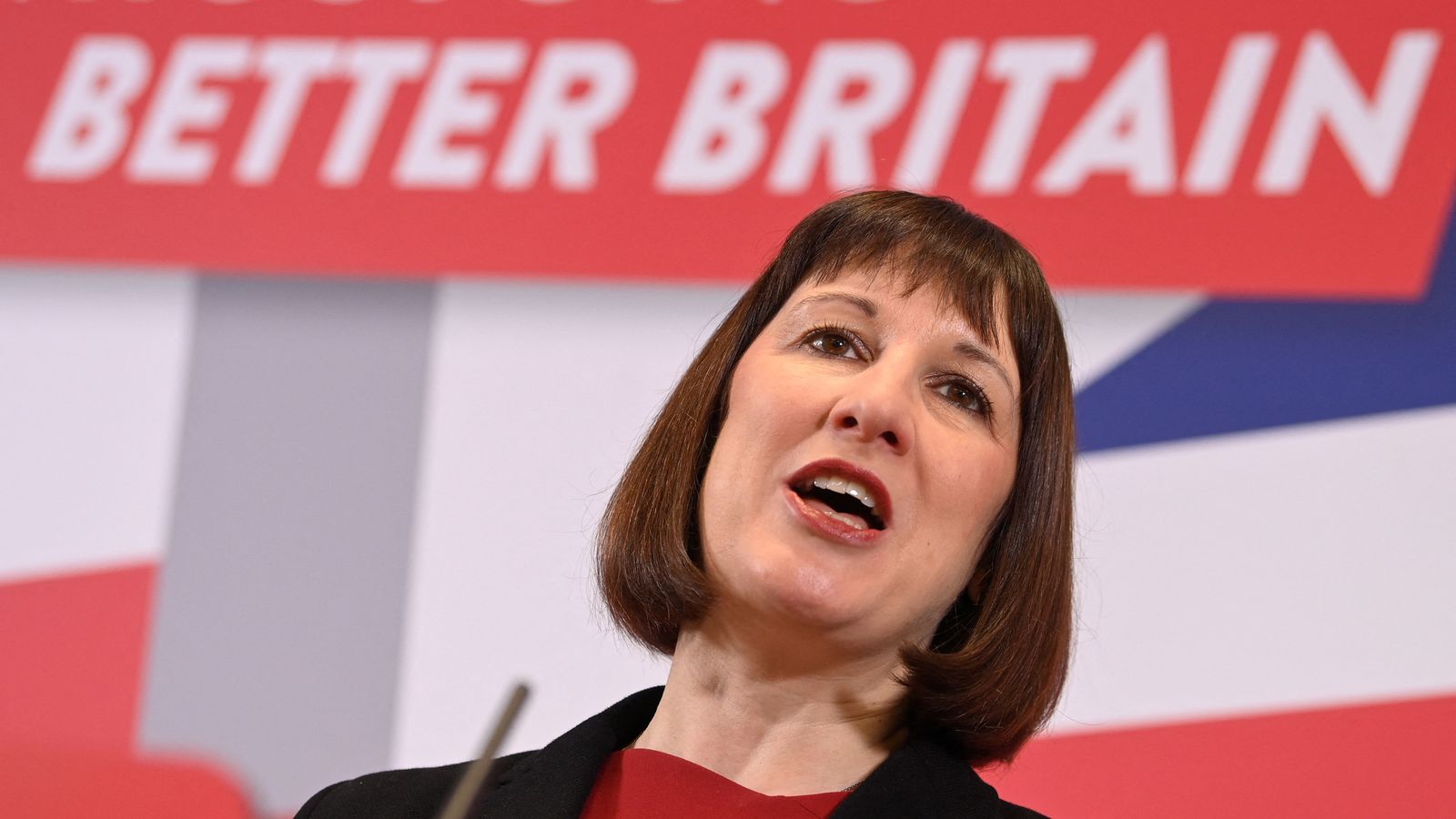The Labour Party has watered down its flagship £28bn green prosperity plan, blaming rising interest rates and the “damage” the Conservatives have done to the economy.
Shadow Chancellor Rachel Reeves said “economic stability, financial stability, always has to come first”.
The party had pledged to invest £28bn per year to accelerate the shift towards net zero emissions by 2050, but Ms Reeves said the economic situation had changed since she first made the promise.
Speaking to BBC Radio 4’s Today programme, Ms Reeves said: “The Tories have crashed our economy, and as a result interest rates have gone up 12 times, inflation is now at 8.7% and I’ve always said our fiscal rules are non-negotiable.
“Economic stability, financial stability, always has to come first and it will do with Labour.
“That’s why it’s important to ramp up and phase up our plans to get to the investment we need to secure these jobs so that it is also consistent with those fiscal rules to get debt down as a share of GDP and to balance day-to-day spending.”
Former Tory chairman lashes out at civil servant ‘blob’ – politics latest
Please use Chrome browser for a more accessible video player
Ms Reeves clarified that the £28bn figure previously aimed for by Labour would be a target to work towards rather than a figure allocated for the plan in the first year of government, as it was originally stated.
However, she denied accusations of a U-turn, saying the figure for spending would not be “zero”.
Asked if Labour could end up not borrowing at all in its first year of government for the plan, she said the party was “more ambitious than that” – but refused to give a rough number.
“Who knows what more damage the Conservatives are going to do to our economy,” Ms Reeves said.
“We haven’t had the final set of numbers by the government so we’re not going to give our final set of numbers.”
And pressed on why she made the pledge in the first place, the shadow chancellor said: “The truth is I didn’t foresee what the Conservatives would do to our economy – maybe that was foolish of me.”
Read more:
Starmer to woo union support for green energy plans
Labour vows to lower monthly student loan repayments
The move comes following reports in The Times that Labour leader Sir Keir Starmer was under pressure to ditch the plan as the party also faced criticism for a proposal to ban new oil and gas developments in the North Sea and for taking donations of Dale Vince, a key backer of campaign group Just Stop Oil.
Ms Reeves sought to quell speculation of a rift with shadow climate change secretary Ed Miliband, whom she said was on the “same page”.
“Keir, Ed and me are all on the same page on this,” she said.
“We know that unless we have this green prosperity plan those jobs and investments will go elsewhere, but that everything we do must rest on these pillars of economic responsibility and fiscal responsibility.”
Mr Miliband tweeted: “Some people don’t want Britain to borrow to invest in the green economy. They want us to back down.
“But Keir, Rachel and I will never let that happen. Britain needs this £28bn a year plan and that is what we are committed to.”
Chancellor Jeremy Hunt said the change was “superficial” and “still adds around £100billion to our national debt – meaning higher mortgages for families and higher debt interest bills for taxpayers”.
“A responsible approach should tackle inflation, not fuel it,” he added.
Conservative Party Chair Greg Hands said Sir Keir’s economic policy lay “in tatters – after even he and Rachel Reeves realised it would lead to disaster”.
Be the first to get Breaking News
Install the Sky News app for free
The SNP’s Westminster leader Stephen Flynn said the move was the “latest in a long line of broken promises from the pro-Brexit Labour Party – and one that could have very real and damaging consequences for Scotland’s green energy potential”.
“The best way to secure economic growth is to properly invest in the renewables gold rush and rejoin the EU – the Labour Party has now turned its back on both and it will be ordinary families who pay the price as the UK economy falls behind and the cost of living soars,” he said.







